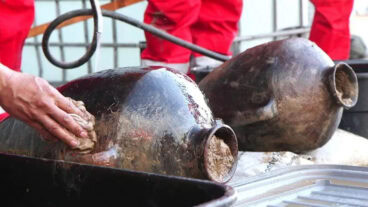Haisam Hassanein is the 2015 valedictorian for international master’s students of Tel Aviv University. The Middle Eastern studies major, who grew up in rural Egypt, says he heard “a million and a half” reasons why not to come to study in Israel but chose to see for himself who these people, about whom he had heard so much negativity, really were.
When asked by security at Ben-Gurion airport why he came here, Hassanein told his fellow graduates that he answered, “I always heard the Jews are bad people, and I came to see this for myself.”
What he had been told about Israelis and what he found were two very different realities.
“I had expected to find that people in Israel were unfriendly and especially unhappy to meet Egyptians, but I was pleasantly surprised by the exact opposite reaction. I was invited everywhere, from Shabbat dinners to Ramadan Iftar meals, to plays and even political gatherings. And the diversity I found here was as surprising as the warmth of the people,” he said in his commencement address.
Hassanein said one of the greatest revelations he had while in Israel was seeing how people got along in their daily lives.
“On my very first day here at the university, I saw men in kippas, women in headscarfs and hijabs. I saw soldiers walking peacefully among crowds of lively students. I learned there were people of every kind in the university, and the university had a place for all of them—Jews, Muslims, Christians, Druze, Bedouins, and even international students,” he said.
“How fascinating is it to be in a city where you can to go a beach in central Tel Aviv and see a Muslim woman, a couple of gays kissing, and a Hasid sharing the same small space? Where else can you find a Christian Arab whose apartment is decorated with posters of Mao and Lenin? Where else can you see a Bedouin IDF soldier reading the Koran on the train during Ramadan?”
The Egyptian-American student posted his address on the Fikra Forum online community that “aims to generate ideas to support Arab democrats in their struggle with authoritarians and extremists.”
He sums up his address with a call-to-action for all: “We must always question our assumptions. Being here in Israel has taught me that life is full of paradoxes and complexities — that nothing is straightforward, and that things are often not as they are made to seem. No matter how much education and life experience we acquire, we must always dig deeper.
“So, today, as I celebrate the end of a great year with my classmates, let’s also remember to go forward with a sense of renewed curiosity, knowing the only thing one should truly expect in life is for life to defy your expectations.”













